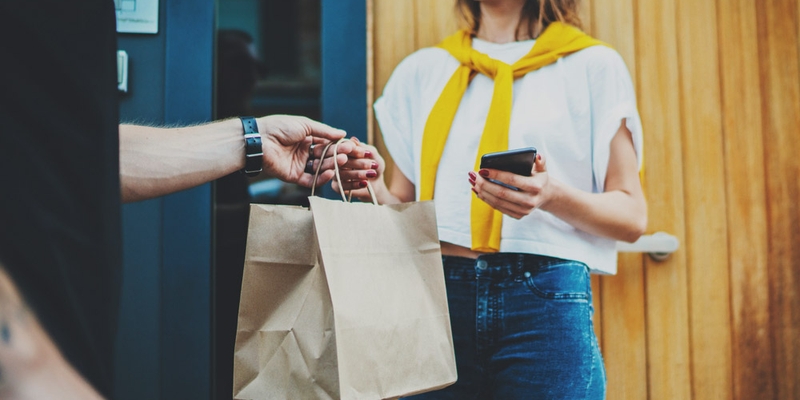
If you are not redirected within 30 seconds, please click here to continue.
Samedi: 10h – 16h HAE

If you are not redirected within 30 seconds, please click here to continue.
If you are not redirected within 30 seconds, please click here to continue.
So, You Want to Deliver Food. Here’s How it Will Impact Your Auto Insurance

Delivering food is a great way to make money. Many Canadians continue to drive for delivery companies like SkipTheDishes, Uber Eats, and DoorDash, even almost two years after the peak of popularity during the COVID-19 lockdowns.
According to Vividata’s latest What’s For Dinner? Canadian Consumer Winter 2021 research, 6.2 million Canadian adults are using food delivery services. Of these services, SkipTheDishes proves to be the most popular, with 67% of adults using the app. Uber Eats comes in second at 44%, followed by DoorDash, sitting at 25%.
Whether you decide to work as a food delivery driver through a mobile app or for a restaurant in your neighbourhood, it’s best to be sure you understand the ramifications the job may have on your personal auto insurance policy. Obtaining the right coverage for delivering food is an essential first step when venturing out on the road.
Food delivery auto insurance: why your personal policy doesn’t deliver
While rideshare businesses like Uber and Lyft have insurance policies to cover their drivers, the same may not be true for people who deliver fast food or takeout.
Drivers may use their vehicles in most cases unless the delivery company provides them with a vehicle (which is unlikely). The problem, though, is auto insurance companies don’t honour personal policies if a driver is in a collision while delivering food. Why? When you work for a food delivery company, you are using your vehicle for a commercial purpose. Your auto policy is not designed to provide coverage for business purposes.
You may need to get a commercial auto insurance policy, but understand that it may cost you more. Some insurance providers will offer a food delivery insurance endorsement to tack on to your personal auto policy. In either scenario, the cost depends on how often you work, how much you drive, when, and where.
It’s also worthwhile to keep in mind that any car insurance policy offered by a food delivery company may be limited in scope, and it may not provide you with the full protection you need if you get into a collision. As with any auto policy, the details are in the fine print.
Going without food delivery insurance will cost you
If you think you can get by without either a food delivery insurance endorsement or a commercial auto policy, think again. Drivers making food deliveries without commercial insurance who file a claim may get treated as if they have no insurance at all.
You should never use your vehicle for commercial purposes without the right protection. If there’s a collision, provincial health will cover emergency care. However, rehabilitation and extended care costs are the driver’s responsibility. So, you should be sure your car insurance policy has adequate coverage for these things as well as liability protection since settlement costs for at-fault drivers can exceed $200,000 in some cases. Also, be aware your insurance company could cancel your policy if they find out that the use of your vehicle changed, and you did not let them know.
Getting a commercial auto insurance policy
Some food delivery companies require drivers to obtain a commercial auto policy.
Like your personal car insurance policy, commercial auto insurance includes liability coverage, protection for property damage, as well as coverage to pay for injuries to you or other people if you are involved in a collision. Although some food delivery companies will provide their drivers with car insurance, there are usually limitations on coverage.
The bottom line is this: if you decide to get into the fast-food delivery game to deliver pizza or any other kind of food, talk to your insurance provider or broker first. Ensure you have the car insurance coverage you need and that your insurance company has the full details on the type of delivery work you intend to do.
The easiest way to save on commercial auto insurance
Compare commercial car quotes from Canadas top insurance providers on RATESDOTCA. We help business owners like you find the best coverage for the lowest price.
Get money-saving tips in your inbox.
Stay on top of personal finance tips from our money experts!










